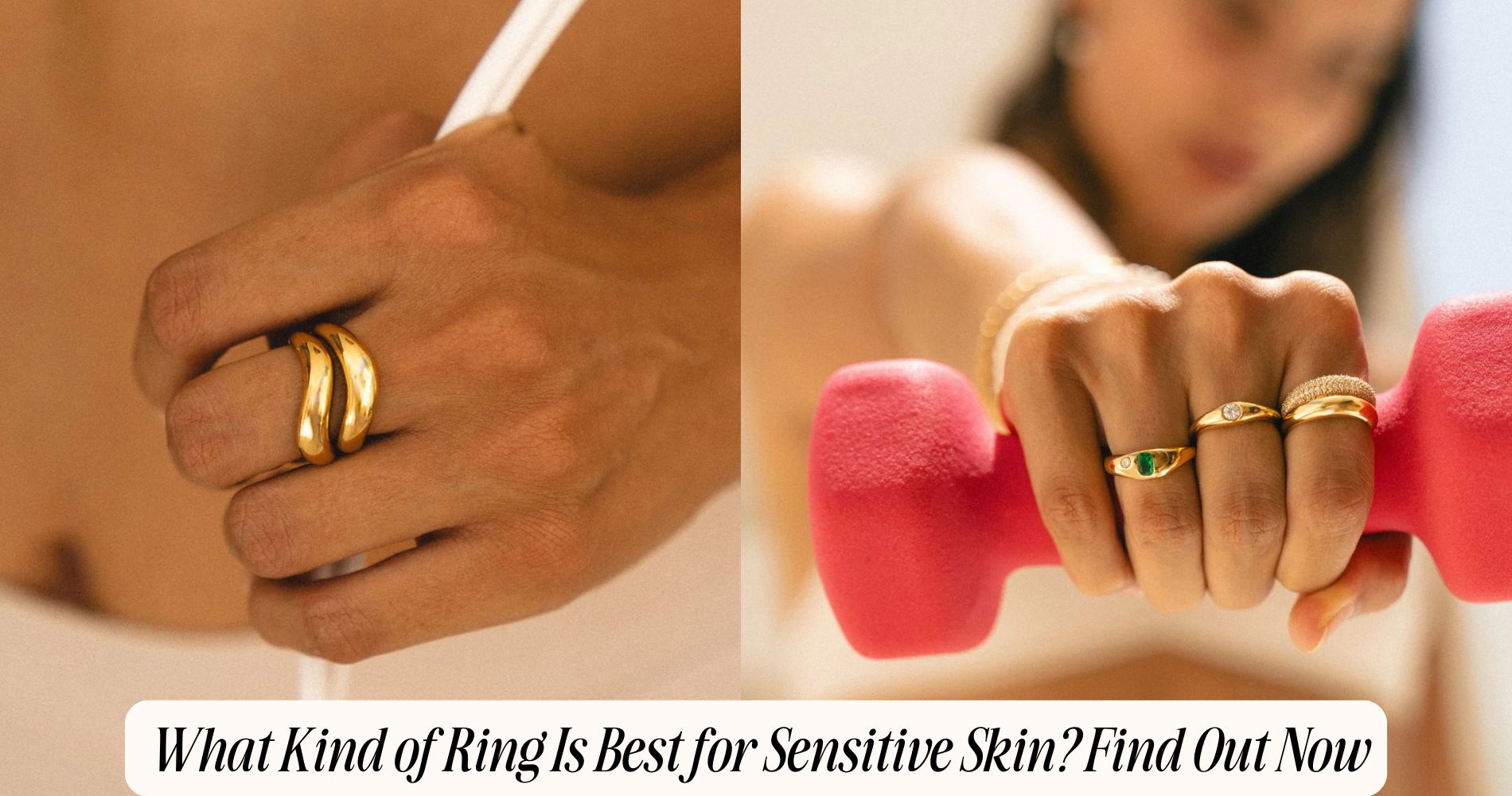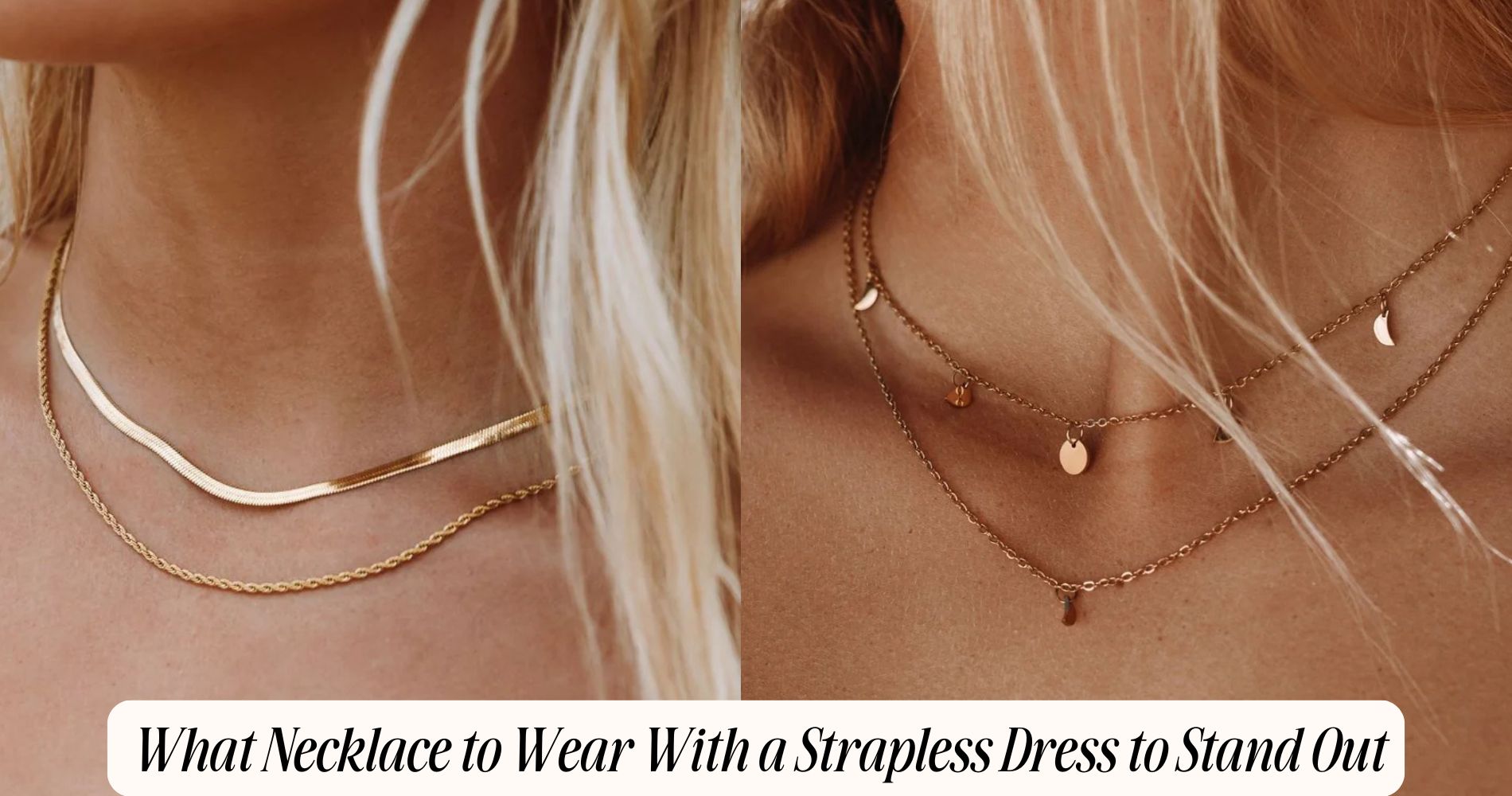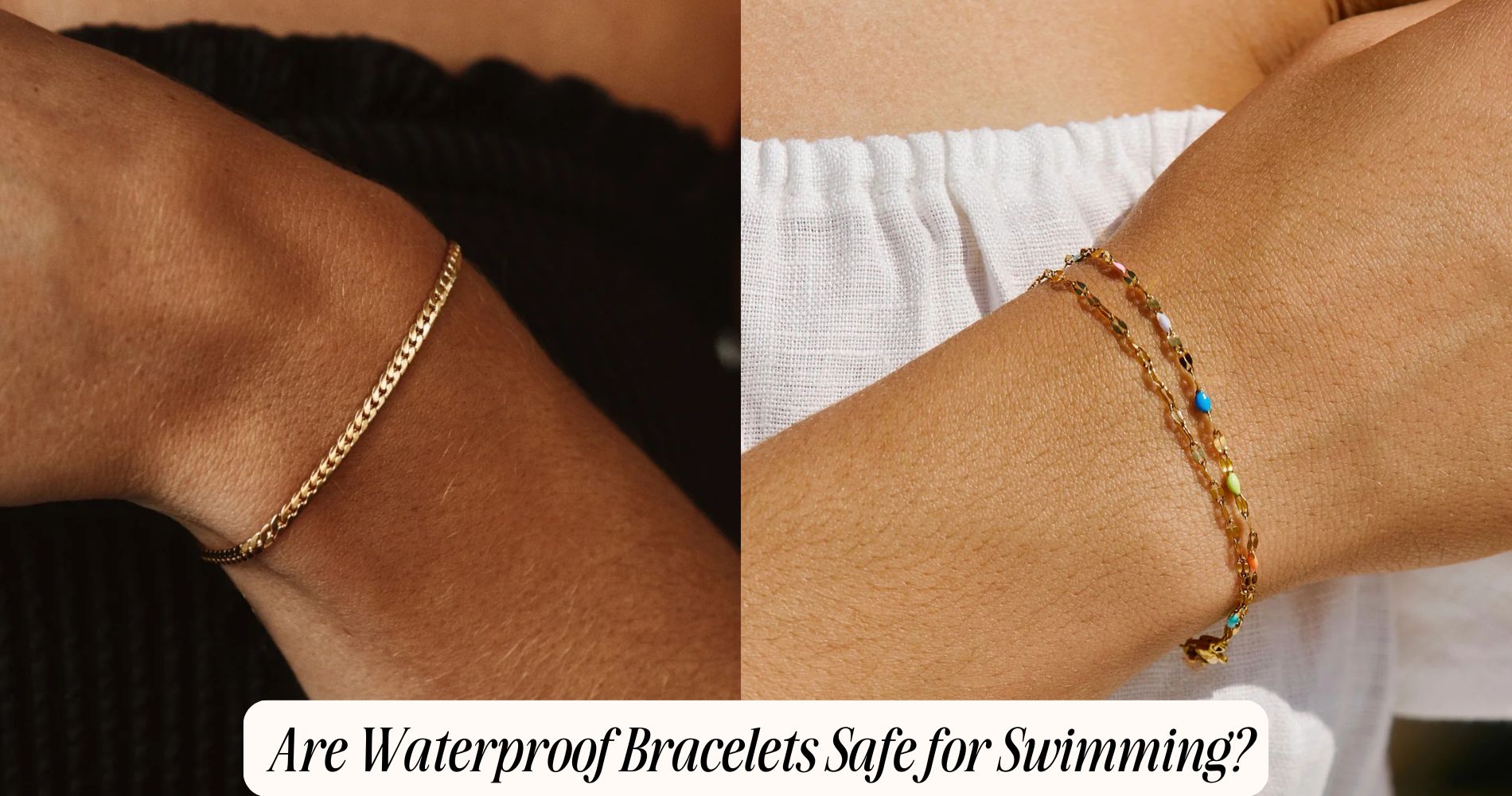
What Kind of Ring Is Best for Sensitive Skin? Find Out Now
Wondering what kind of ring is best for sensitive skin? The answer lies in hypoallergenic metals like platinum, titanium, or surgical-grade stainless steel—materials that rarely trigger allergic reactions, according to clinical studies. Steer clear of nickel-based alloys, often found in white gold, sterling silver, and low-cost costume jewelry, as they can cause irritation or dermatitis. Always check the metal content and choose solid, high-quality pieces. To stay safe and stylish, explore our tarnish-free rings, designed for comfort and perfect for sensitive skin.
Understanding Sensitive Skin and Jewelry Allergies
Although jewelry enhances personal style, individuals with sensitive skin face unique challenges when wearing rings. You may experience skin reactions such as erythema, pruritus, or dermatitis when exposed to specific metals or alloys.
These reactions often stem from allergy triggers like nickel, cobalt, or chromium, commonly found in jewelry. Upon contact, your immune system may identify these substances as threats, initiating an inflammatory response.
Clinical studies have documented that metal-induced allergic contact dermatitis represents a significant dermatological concern.
Repeated exposure to these allergy triggers can sensitize your skin over time, increasing susceptibility to adverse reactions.
Understanding the mechanisms underlying these skin reactions allows you to make informed decisions when selecting rings, reducing the likelihood of discomfort or dermatological complications associated with sensitive skin.
Top Hypoallergenic Metals for Rings
When selecting a ring for sensitive skin, prioritizing hypoallergenic metals is essential to minimize the risk of allergic contact dermatitis. Clinical evidence supports platinum, titanium, and surgical-grade stainless steel as ideal choices due to their low reactivity and minimal release of allergenic ions.
Platinum is chemically inert, reducing sensitization risk. Titanium's passivated oxide layer limits skin irritation, making it suitable for individuals with histories of metal intolerance. Surgical-grade stainless steel (316L) is also widely tolerated and utilized in medical implants.
Before making a decision, consider undergoing allergy testing with a skin patch to identify personal sensitivities. This proactive approach allows you to select ring materials with confidence, ensuring both comfort and long-term wear without triggering adverse dermatological reactions.
Popular Ring Materials to Avoid
While hypoallergenic metals offer safe options, several commonly used ring materials frequently provoke adverse skin reactions. Nickel-containing alloys represent the most common culprits, as they’re directly linked to nickel sensitivity and contact dermatitis.
Even small amounts of nickel in white gold, sterling silver, or costume jewelry can trigger allergic reactions, including erythema, pruritus, and vesicular eruptions. Brass and copper alloys also pose risks, as they often include nickel or other reactive metals.
Low-quality plating on rings may degrade, exposing your skin to allergenic substrates beneath. Stainless steel, unless labeled surgical-grade, sometimes contains nickel that can leach with prolonged wear.
When you’re prone to nickel sensitivity, exposure to these materials significantly increases the likelihood of discomfort and dermatological complications. Always scrutinize metal composition before selecting a ring.
Tips for Choosing the Right Ring for Your Skin
If you want to minimize the risk of skin irritation, prioritize rings crafted from hypoallergenic materials such as platinum, titanium, or surgical-grade stainless steel. These materials considerably reduce the likelihood of triggering nickel sensitivity, a common cause of allergic contact dermatitis.
When selecting a ring, scrutinize product specifications and confirm the absence of nickel or other common allergens. Opt for solid, high-quality metals rather than plated or alloyed options, as these may contain trace allergens.
If you have gemstone allergies, consider rings that use inert settings or protective bezels, which limit direct skin contact with potential irritants. Always verify the origin and treatment of gemstones, as certain dyes or adhesives can provoke reactions.
Taking these precautions will support ideal skin health.
How to Care for Your Rings and Prevent Irritation
Although hypoallergenic materials mitigate most reactions, improper ring care can still provoke skin irritation. To minimize allergic reactions, you should clean your rings regularly using mild soap and water, ensuring that no soap residue remains. Dry your rings thoroughly before wearing them, as trapped moisture can foster microbial growth and exacerbate skin irritation.
Store your rings in a clean, dry environment to prevent contamination from dust or chemicals. Avoid exposing your rings to harsh cleaning agents, perfumes, or lotions, as these substances may cause degradation of hypoallergenic surfaces or contribute to contact dermatitis.
If you notice redness, itching, or swelling, discontinue wearing the ring and consult a dermatologist. Consistent maintenance and vigilance markedly reduce the risk of allergic reactions and help preserve your skin’s health.
Frequently Asked Questions
Can Sensitive Skin Reactions to Rings Develop Later in Life?
Yes, you can develop age related sensitivities and late onset allergies to metals in rings. Immune system changes over time may cause your skin to react, even if you previously tolerated certain materials without issues.
Are Gemstone Rings Safe for Sensitive Skin?
You should assess gemstone rings for allergy prevention by comparing settings and band materials—opt for hypoallergenic metals like platinum or titanium. Gemstones themselves rarely cause reactions, but nickel or mixed-metal alloys in settings may trigger sensitivities.
How Can I Test if a Ring Will Cause a Reaction Before Buying?
To assess potential reactions, request ring allergy testing from a dermatologist or use hypoallergenic jewelry sample patches. Apply them to a small skin area, monitor for irritation or redness, and guarantee the product meets hypoallergenic standards.
What Should I Do if I Have a Reaction to a New Ring?
If you experience ring allergy or skin irritation, immediately remove the ring. Cleanse the affected area with mild soap and water. Apply a hypoallergenic moisturizer. If symptoms persist or worsen, consult a dermatologist for further evaluation and management.
Are Custom-Made Rings Better for People With Skin Sensitivities?
You benefit from custom-made rings, as you can select hypoallergenic materials tailored to your needs. Combine this with allergy testing to identify potential triggers, ensuring your ring minimizes the risk of contact dermatitis or allergic reactions.
Conclusion
Choosing the right ring for sensitive skin requires careful attention to material composition and craftsmanship. Prioritize hypoallergenic metals such as platinum, titanium, or surgical-grade stainless steel to reduce the risk of contact dermatitis and allergic reactions. Avoid common irritants like nickel and low-quality alloys. Regular cleaning and prompt removal when irritation occurs further minimize potential issues. By selecting appropriate materials and maintaining proper hygiene, you’ll protect your skin while enjoying stylish and comfortable jewelry.























Leave a comment
This site is protected by hCaptcha and the hCaptcha Privacy Policy and Terms of Service apply.